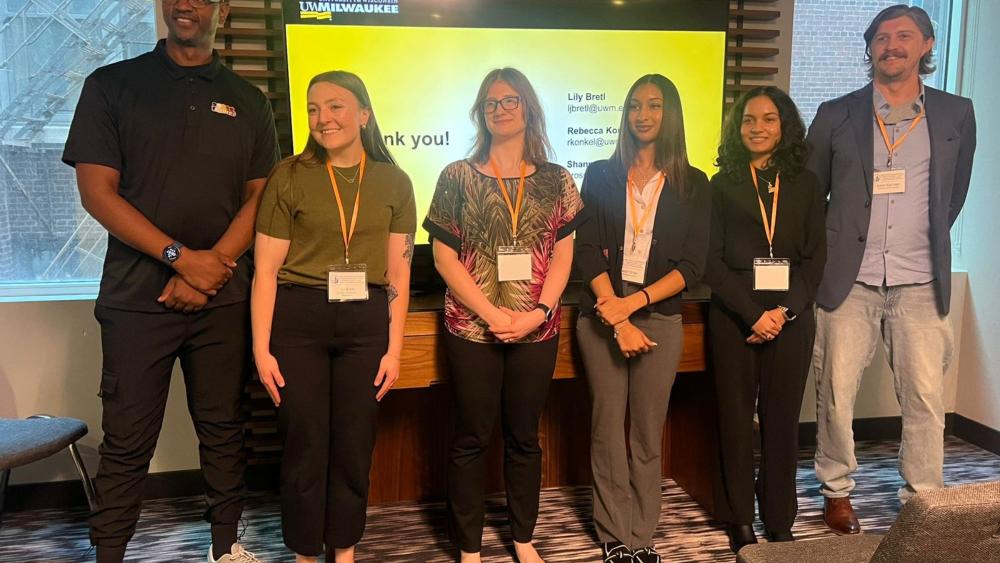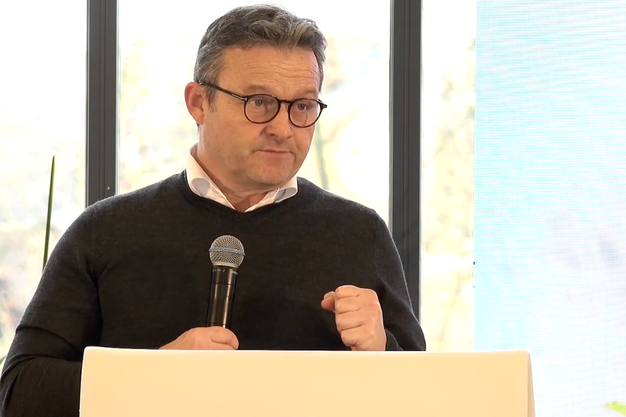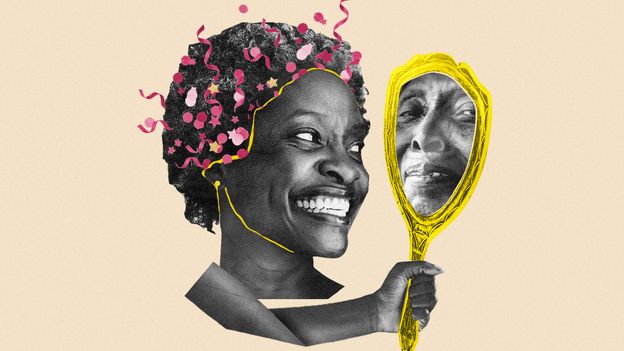International organisations call for the release of human rights defenders Alejandro Henríquez and José Ángel Pérez from El Salvador – Front Line Defenders

Report on the Arbitrary Detention of Human Rights Defenders in El Salvador and its Implications for the Sustainable Development Goals
1.0 Executive Summary
This report details the arbitrary detention of environmental defender Alejandro Henríquez and community leader José Ángel Pérez in El Salvador since May 2025. Their imprisonment, following a peaceful protest against forced evictions, represents a significant violation of fundamental human rights and a direct impediment to the achievement of several Sustainable Development Goals (SDGs). The actions of the Salvadoran state undermine progress on SDG 16 (Peace, Justice and Strong Institutions), SDG 1 (No Poverty), SDG 11 (Sustainable Cities and Communities), and SDG 15 (Life on Land). This case highlights a systemic erosion of the rule of law and civic space, threatening the foundation of sustainable development in the nation.
2.0 Case Background: A Setback for Community and Environmental Sustainability
Alejandro Henríquez, an environmental lawyer, and José Ángel Pérez, a community leader, were detained while defending the rights of over 300 campesino families from forced eviction. Their work is intrinsically linked to core SDG principles:
- SDG 1 (No Poverty) & SDG 2 (Zero Hunger): By protecting the land and livelihoods of the Cooperativa El Bosque members, the defenders were working to prevent poverty and ensure food security for a vulnerable community.
- SDG 11 (Sustainable Cities and Communities): Their actions supported the right to adequate housing and the protection of established communities against forced displacement.
- SDG 15 (Life on Land): As an environmental defender, Mr. Henríquez’s efforts contribute to the sustainable management of land and the protection of local ecosystems.
Both individuals have been declared prisoners of conscience by Amnesty International, underscoring the political nature of their detention.
3.0 Violations of SDG 16: Peace, Justice and Strong Institutions
The handling of this case by Salvadoran authorities demonstrates a severe regression from the targets of SDG 16, which calls for accountable institutions, access to justice, and the protection of fundamental freedoms.
- Erosion of Rule of Law: On 29 October 2025, a court rejected a request for alternative measures to pre-trial detention, despite evidence of the defenders’ community ties. This continued detention without trial contravenes the principles of due process.
- Lack of Access to Justice: The defenders are being held incomunicado, denied access to legal counsel and family. This practice obstructs their right to a fair defense and violates international human rights standards.
- Weakening of Institutions: The case is symptomatic of a broader pattern of state persecution against human rights defenders and the misuse of the criminal justice system to silence dissent. This co-optation of the judiciary undermines the integrity and accountability of state institutions.
- Restriction of Fundamental Freedoms: The closure of civic space and the criminalisation of peaceful protest directly violate SDG Target 16.10, which aims to ensure public access to information and protect fundamental freedoms.
4.0 Recommendations for Action
To realign with the commitments of the 2030 Agenda for Sustainable Development, the undersigned organisations present the following recommendations.
4.1 Recommendations to the State of El Salvador
- Immediately release Alejandro Henríquez, José Ángel Pérez, and all other arbitrarily detained human rights defenders to restore faith in the justice system, in line with SDG 16.
- Cease the punitive use of pre-trial detention and guarantee due process for all citizens, upholding the principles of effective and accountable institutions.
4.2 Recommendations to the International Community
- In the spirit of SDG 17 (Partnerships for the Goals), urge the State of El Salvador to end the instrumentalisation of its justice system against civil society.
- Utilize diplomatic channels and conditional cooperation to advocate for the protection of civic space, the rule of law, and human rights, which are essential preconditions for achieving all SDGs in El Salvador.
5.0 Signatories
- ARTICLE 19 Mexico and Central America
- Center for Justice and International Law (CEJIL)
- CIVICUS, World Alliance for Citizen Participation
- Committee in Solidarity with the People of El Salvador (CISPES)
- Ecumenical Office for Peace and Justice e.V. – Munich, Germany.
- Flüchtlingshilfe Mittelamerika e.V. – Goch, Germany
- Front Line Defenders
- Latin America Working Group (LAWG)
- Protection International
- Rights & Security International (RSI)
- World Organization Against Torture (OMCT)
- Zehar-Errefuxiatuekin – Euskal Herria, Spanish State
1. Which SDGs are addressed or connected to the issues highlighted in the article?
SDG 16: Peace, Justice and Strong Institutions
- The article’s central theme is the failure of justice and the weakening of institutions in El Salvador. It details the “arbitrary detention” of human rights defenders, the “misuse of the criminal process and the justice system,” a “co-opted judiciary,” and the “erosion of the separation of powers.” These issues directly challenge the goal of building peaceful, just, and inclusive societies with effective, accountable institutions.
SDG 11: Sustainable Cities and Communities
- The protest that led to the arrests was against the “forced eviction of more than 300 campesino families.” This issue is directly related to housing rights and security of tenure, which are key components of making human settlements inclusive, safe, resilient, and sustainable.
SDG 1: No Poverty
- The “forced eviction” of 300 campesino families from a cooperative directly threatens their livelihoods, access to land, and economic stability. Losing control over land and property is a primary driver of poverty, making this SDG relevant to the root cause of the protest.
2. What specific targets under those SDGs can be identified based on the article’s content?
SDG 16: Peace, Justice and Strong Institutions
- Target 16.3: Promote the rule of law at the national and international levels and ensure equal access to justice for all. The article highlights the violation of this target by describing how the defenders are held in “pre-trial detention” in a manner that is a “clear violation of due process guarantees.” The mention of a “co-opted judiciary” further emphasizes the lack of equal access to justice.
- Target 16.10: Ensure public access to information and protect fundamental freedoms, in accordance with national legislation and international agreements. The article describes a “systematic pattern by the Salvadoran State aimed at silencing human rights defenders, journalists, and critical voices through persecution, criminalisation and the implementation of restrictive laws that hinder social organisations and diminish civic space.” The detention of defenders for participating in a “peaceful protest” is a direct assault on fundamental freedoms of assembly and expression.
- Target 16.A: Strengthen relevant national institutions… through international cooperation… to prevent violence. The call to the “international community” to “take urgent action through diplomatic channels, conditional assistance, and cooperation to protect civic space, the rule of law, democracy and human rights in El Salvador” directly aligns with this target of strengthening institutions via international cooperation.
SDG 11: Sustainable Cities and Communities
- Target 11.1: By 2030, ensure access for all to adequate, safe and affordable housing and basic services and upgrade slums. The core issue that sparked the protest was the “forced eviction of more than 300 campesino families who are members of Cooperativa El Bosque.” This action directly undermines the goal of ensuring access to adequate and secure housing for all.
SDG 1: No Poverty
- Target 1.4: By 2030, ensure that all men and women, in particular the poor and the vulnerable, have equal rights to economic resources, as well as access to basic services, ownership and control over land and other forms of property. The eviction of campesino families from their cooperative land represents a direct denial of their rights to control over land and economic resources, pushing a vulnerable population further into poverty.
3. Are there any indicators mentioned or implied in the article that can be used to measure progress towards the identified targets?
Target 16.3: Promote the rule of law and access to justice
- Indicator 16.3.2: Unsentenced detainees as a proportion of overall prison population. The article explicitly states that the defenders “remain in pre-trial detention” and urges authorities to “refrain from using pre-trial detention as a form of anticipated punishment.” The status of Alejandro Henríquez and José Ángel Pérez as unsentenced detainees is a direct, qualitative example related to this indicator.
Target 16.10: Protect fundamental freedoms
- Indicator 16.10.1: Number of verified cases of… arbitrary detention… of… human rights advocates. The entire article serves as a report on the “arbitrary detention of environmental defender Alejandro Henríquez and community leader José Ángel Pérez.” It also refers to a “systematic pattern” of such actions against “human rights defenders, journalists, and critical voices,” implying that the number of such cases is a key measure of the problem.
Target 11.1: Ensure access to adequate housing
- The article provides a specific number for an event that would negatively impact progress towards this target: the “forced eviction of more than 300 campesino families.” This figure can be used as a direct, albeit informal, indicator of housing insecurity and the failure to protect residents from forced evictions.
4. Table of SDGs, Targets, and Indicators
| SDGs | Targets | Indicators (and evidence from the article) |
|---|---|---|
| SDG 16: Peace, Justice and Strong Institutions | Target 16.3: Promote the rule of law and ensure equal access to justice for all. | Implied Indicator (related to 16.3.2): Number of individuals held in pre-trial detention without due process. Evidence: The article states that the defenders “remain in pre-trial detention” and calls on authorities to “refrain from using pre-trial detention as a form of anticipated punishment… in clear violation of due process guarantees.” |
| SDG 16: Peace, Justice and Strong Institutions | Target 16.10: Ensure public access to information and protect fundamental freedoms. | Indicator 16.10.1: Number of verified cases of arbitrary detention of human rights advocates. Evidence: The article is centered on the “arbitrary detention of environmental defender Alejandro Henríquez and community leader José Ángel Pérez” and notes a “systematic pattern” of persecution against “human rights defenders, journalists, and critical voices.” |
| SDG 11: Sustainable Cities and Communities | Target 11.1: Ensure access for all to adequate, safe and affordable housing. | Implied Indicator: Number of people affected by forced evictions. Evidence: The protest was a direct response to the “forced eviction of more than 300 campesino families.” |
| SDG 1: No Poverty | Target 1.4: Ensure equal rights to economic resources, ownership and control over land. | Implied Indicator (related to 1.4.2): Number of people lacking secure tenure rights to land. Evidence: The “forced eviction of more than 300 campesino families who are members of Cooperativa El Bosque” demonstrates a direct violation of their control over land and economic resources. |
Source: frontlinedefenders.org
What is Your Reaction?
 Like
0
Like
0
 Dislike
0
Dislike
0
 Love
0
Love
0
 Funny
0
Funny
0
 Angry
0
Angry
0
 Sad
0
Sad
0
 Wow
0
Wow
0














































































